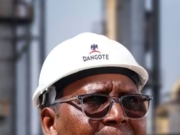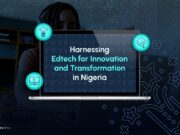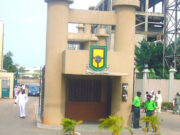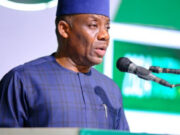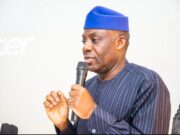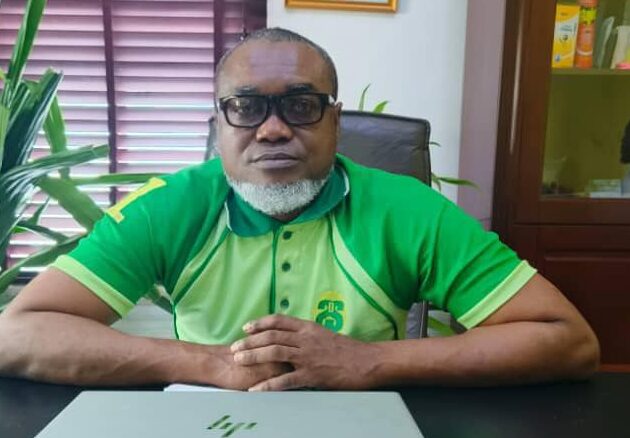Isiani says Nigeria continues to lag in key development indicators—not due to a lack of natural resources or entrepreneurial zeal, but owing to a chronically faulty education sector and Nigeria’s socioeconomic development slowdown. At the heart of this stagnation is an education system that has long underdelivered, leaving a vast swath of young Nigerians underprepared for the challenges of a modern economy.
Speaking at the Amuwo‑Odofin headquarters of School Development Support International (SDS) in Lagos, Anthony Nwachukwu Isiani, founder of SDS, described Nigeria’s developmental inertia as “avoidable,” stemming directly from educational failures. To combat this, Isiani and his team are rolling out a bold new blueprint.
Dubbed the Trinity of Human Development, this framework positions education, agriculture, and engineering as interlinked pillars essential to tackling Nigeria’s structural deficits. Each is treated not as a standalone sector but as part of a holistic ecosystem—one where engineers design educational tools, agricultural experts discover practical sustainability, and educators foster future innovators.
“Where governments and private entities invest equitably in all three sectors, transformation follows,” Isiani told journalists.
Table of Contents
From Vision to Tangible Innovation
Within SDS’s lab-like campus, the media witnessed firsthand a suite of homegrown inventions aimed at revolutionising the classroom experience. Engineer-designed furniture—desks, chairs, lockers—and outfitted labs were complemented by playful “learning zones” for children, integrating storytelling and hands-on discovery.
From IoT-enhanced audiovisual screens to child‑size table tennis stations, each product blends utility with engagement. Markers, tablets, and interactive whiteboards—each conceived with school contexts in mind—aim to make learning joyful and effective. It’s a vision of education as experience, not mere instruction.
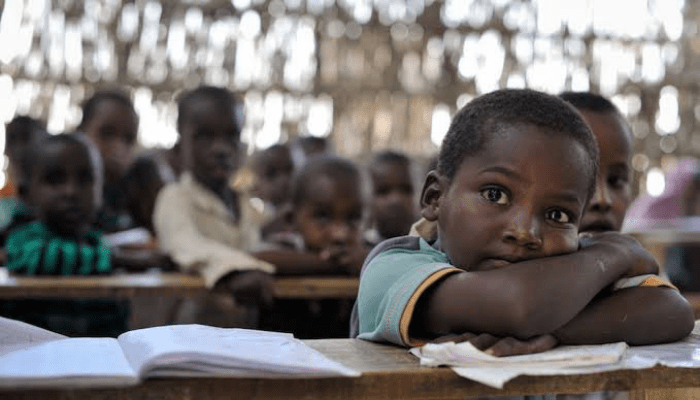
A Personal Journey from Classroom to Innovation Hub
Isiani’s own professional narrative mirrors the transition he advocates. A mechanical engineering graduate from the University of Nigeria, Nsukka, he once stood before classrooms as a teacher. Yet, lacking formal credentials for administrative promotion, he pivoted—briefly served in oil services, then reinvested his engineering mindset back into education.
“I nearly launched a school myself,” he recounted, “but that path felt constricting. My real impact? Serving as a solution provider to all schools through education engineering.”
Why Systemic Overhaul Matters Now
Nigeria’s untapped talent is not a problem of ambition but of infrastructure. Thousands of schools lack trained teachers, modern equipment, and engaging spaces. Without foundational improvements, the economy bleeds opportunity: young people are unable to innovate, rural regions are decoupled from agriculture modernisation, and society is deprived of engineers and scientists.
SDS’s holistic approach counters this cycle. Every chair, lab table, and AV screen is more than a tool—it’s a statement about the dignity of learning and the belief that Nigerian classrooms deserve world-class infrastructure.
Call to Action: Time for Policy and Private Sector Revolution
Isiani stresses that no single actor can solve this alone. All levels of government—federal, state, local—and the private sector must invest deliberately in the triangle of education, agriculture, and engineering. Properly funded and managed, these sectors can become catalysts for innovation, employment, and national resilience.
Supported by initiatives like the Universal Basic Education Commission (UBEC), which aims to improve foundational school quality, the nation has existing frameworks, but they need scaling, not just lip service.
Conclusion
Nigeria stands at a crossroads: with rich human capital and global youth demographics on its side, the only question is whether the nation chooses to invest in learning environments that match this promise. The faulty education sector and Nigeria socioeconomic development are intimately linked—and solving one may finally pull the other forward.
Join Our Social Media Channels:
WhatsApp: NaijaEyes
Facebook: NaijaEyes
Twitter: NaijaEyes
Instagram: NaijaEyes
TikTok: NaijaEyes
READ THE LATEST EDUCATION NEWS






